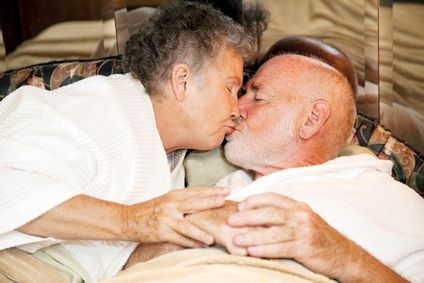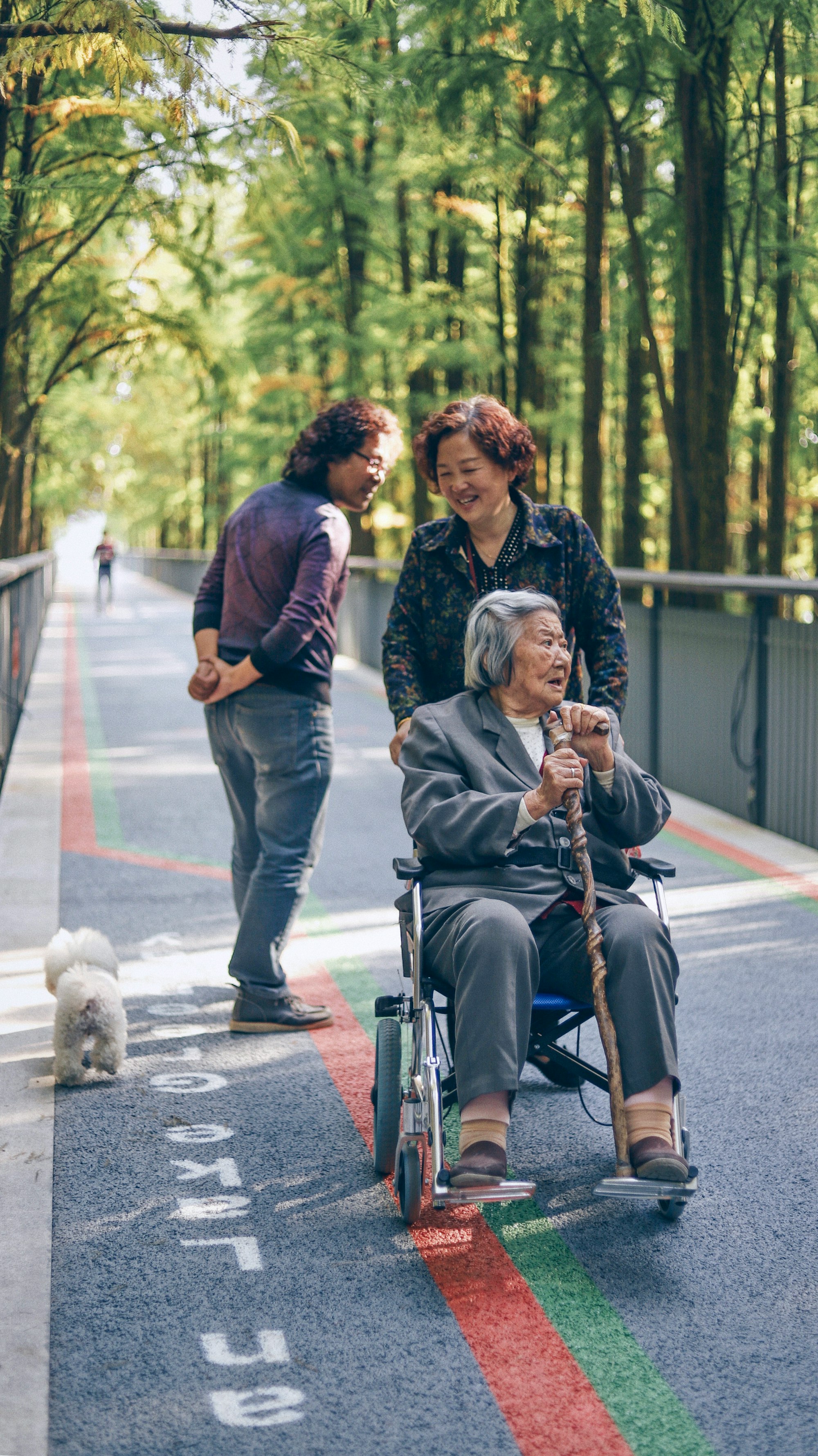Generation Silent: LGBTQ seniors disrespected in LT care, forgotten by own youth-centric community
Discover the challenges faced by gay and lesbian seniors in long-term care through the story of Alexandre and Lawrence. Learn about discrimination and disrespect in care facilities and the difficulty of finding a welcoming nursing home for loved ones.

During World War II, Alexandre served his country as a medic. He respectfully and dutifully helped save the lives of those fighting on the front lines to keep our county free.
But when Alexandre became old and frail, finding himself in his own battle with Parkinson’s disease and struggling just to get through each day, respect did not come easy.
Like so many caregivers, Alexandre’s partner, Lawrence, gave all he had caring for the love of his life. He tended to him at home as long as he could, but after an accident Alexandre landed in the hospital and then a nursing home.
“From the hospital he was sent to a nursing facility, and I really didn’t know what was going on,” recalled Lawrence, explaining during an interview with CaregiverRelief that definitive moment that so many of us who have cared for people with dementia face.
Sometimes with only two days’ notice, the hospital tells you they are discharging your loved one and you need to find a nursing home. It comes as a shock to anyone who has gone through it. Medicare pays for the first 100 days of care, and then you’re on your own.
Nobody wants to go to a nursing home, and when it happens, dedicated caregivers like Lawrence often spend every waking moment at their loved one’s side. Especially at first.
“It was a beautiful place,” Lawrence recalled of the first nursing home Alexandre entered. “So I said, ‘Oh this is really nice.’ But little did I know…it was really a disaster.”
In a nutshell, Lawrence never felt welcome when he was visiting his same-sex partner. Whispers. Stares.
Related News: Aging LGBTQ People Need to Prepare for their Trip over the Rainbow
Several members of the staff, nurse’s aides in particular, Lawrence said, made it clear he was not welcome there. “It was mostly just attitude,” he explained. “If you feel as if you’re not wanted someplace you’re in a state of stress. You’re not allowed to be who you are.”
Whispers, stares, rudeness, utter disrespect
Those who read my pieces regularly know why this story strikes a chord with me. Lawrence and Alexandre are featured in a film that premiers Nov. 9 on Logo, “Generation Silent.” It’s all about gay and lesbian seniors and the struggles they face when they find themselves needing long-term care.
Although my dad was not gay, I sure am. And like Lawrence, I spent many hours of every day at dad’s facility. My dad had nobody at all other than me and my brother, also single with no children. My brother worked all the time and only was able to make weekly visits. He never had a clue as to what I witnessed, or how my father and I were treated on a regular basis at his memory care facility.
From day one, Diane Carbo, the purveyor of this site, suggested I likely was experiencing the sort of homophobia that runs rampant in many of these places. Since I was my dad’s only real advocate, he experienced it too. Eventually, the executive director had me trespassed, and my father and I were apart for 108 days. We were reunited one month before his death (last month) after I explained to the state of Illinois that my dad was a “two to one” and had no business in an assisted living facility. My brother had no choice but to put him in a nursing home.
Eventually, Lawrence found a better place for Alexandre, who died two years later. He found it through word of mouth, from a lesbian who worked there. The facility had a gay executive director and many gay employees, so Lawrence was able to lovingly rub lotion onto the hands of his dying companion and not have to worry about stares or whispers.
Generation Silent Trailer
Vietnam vet KrysAnne: Unthinkable suffering
As I’ve reported many times before, gay and lesbian people often find themselves alone in their golden years. According to SAGE, LGBT seniors are twice as likely to live alone, twice as likely to be single, and three to four times less likely to have children.
And here’s the other problem. The LGBT culture (the gay culture in particular) is one that celebrates youth. As gay people get older, they tend to stray from “the crowd,” the younger set you see behaving outrageously at pride celebrations.
I’m only 45, and I already have very much “aged out” of the gay community. Not only did I serve many years as my elderly father’s caregiver, I also am sober. Both of those events – and I’m not whining – are very isolating, particularly for a single gay person. Frankly, I enjoy my peace and quiet these days.
Related News: LGBTQ Caregivers: The Isolated among the Isolated, and what Baltimore is doing to Help
But if I were to stare down a life threatening illness right now, or were to become disabled due to old age, I don’t have anyone to care for me. I don’t. My best hope would be for my straight high school friends from the 1980s to help. And for so many gay people who have fled their hometowns, that’s not an option when they get old either.
So consider the plight of KrysAnne, a sweet transgender woman who dutifully served her country in Vietnam. KrysAnne developed lung cancer. And even then, her family, who disowned her after she transitioned, would send her nasty, vulgar messages and even return her letters.
Gen Silent subject Krys Anne Hembrough
KrysAnne found herself dying of lung cancer alone in her home. I can tell you as someone who has reported on lung cancer and/or COPD, and who also had a dear friend die from lung cancer, it’s a horrible death. When you see sweet KrysAnne, who remains remarkably positive in spite of the abuse she absorbed for years, huff and puff just to get through each day, alone, it will break your heart.
Of course KyrsAnne wanted to die in her lovely home, very fearful of being cared for by unsuspecting nursing home workers who would discover her penis. And she very bluntly phrases it that way.
But even if KrysAnne were to sell her bumblebee yellow Mercedes Benz, the proceeds only would pay for around-the-clock in-home care for one month.
What some younger LGBTQ people do not understand
You will have to watch the film to find out what happens with KrysAnne, as well as Sheri and Lois, a couple of old lesbians (and I’m a gay man so I can say this, and I say it lovingly) who exemplify all that is right about a couple of old lesbians. In the film, they serve as the historians who explain the sacrifices today’s gay seniors made to create this quasi-accepting American society gay people live in today.
Just think, today’s gay and lesbian seniors were in their 20s during McCarthyism. Their parents legally were able to have them committed to insane asylums for being gay if they wanted to. It’s not something the twinks who twirl around dance floors today have any concept of, nor do some of them even seem interested in learning about that history. It’s heresy.
The good news is, organizations like SAGE are working hard to open the eyes of people who work in and manage long-term care facilities and home care agencies. In the film, one official even describes how home care workers frequently will get out a Bible and tell gay seniors that through prayer they can find salvation for their sins (meaning the "sin" of living life openly as a gay person).
You will see in the film the resistance organizations like SAGE face when trying to educate people who work in long-term care. And it’s alarming.
“Generation Silent” is a must watch for any caregiver as well as any LGBTQ person.
LGBT is a Federal Priority
Generation Silent
Our Resources section can help you find the information and tools that you need. We have courses, videos, checklists, guidebooks, cheat sheets, how-to guides and more.
You can get started by clicking on the link below. We know that taking care of a loved one is hard work, but with our help you can get the support that you need.
Click here to go to Resources Section now!
Exploring Challenges Faced by LGBT Older Adults
There are an estimated 2.7 million LGBT adults aged 50 and older in the United States, with 1.1 million of them being 65 and older. It is crucial to understand the unique needs and experiences of LGBT older adults in order to better serve them and create policies that support their well-being. This includes service providers, advocates, the aging network, and policymakers.
In the past, LGBT aging was often overlooked and misunderstood. However, pioneers in the field challenged stereotypes and paved the way for a more positive understanding of aging within the LGBT community. Despite the growing population of LGBT older adults, they still face invisibility in aging services, policies, and research. By 2060, it is projected that over 5 million older adults will identify as LGBT.
Language surrounding sexuality and gender has also evolved over time. It is important to use respectful and inclusive language when addressing LGBT older adults. Cultural differences in terminology also exist, such as the use of terms like "same-gender loving" and "two-spirit" in different communities.
When studying LGBT aging, it is important to consider generational differences. The Invisible Generation, the Silent Generation, and the Pride Generation each have their own unique experiences and challenges. Despite historical marginalization, many LGBT older adults are aging well and experiencing good health. However, there are still pockets of serious risk within these communities, highlighting the need for targeted support and resources.
It is crucial to recognize and address the specific needs of LGBT older adults in order to create a more inclusive and supportive society for all.
Click here to watch the video Aging as LGBT: Two Stories.
You might also like this article:








